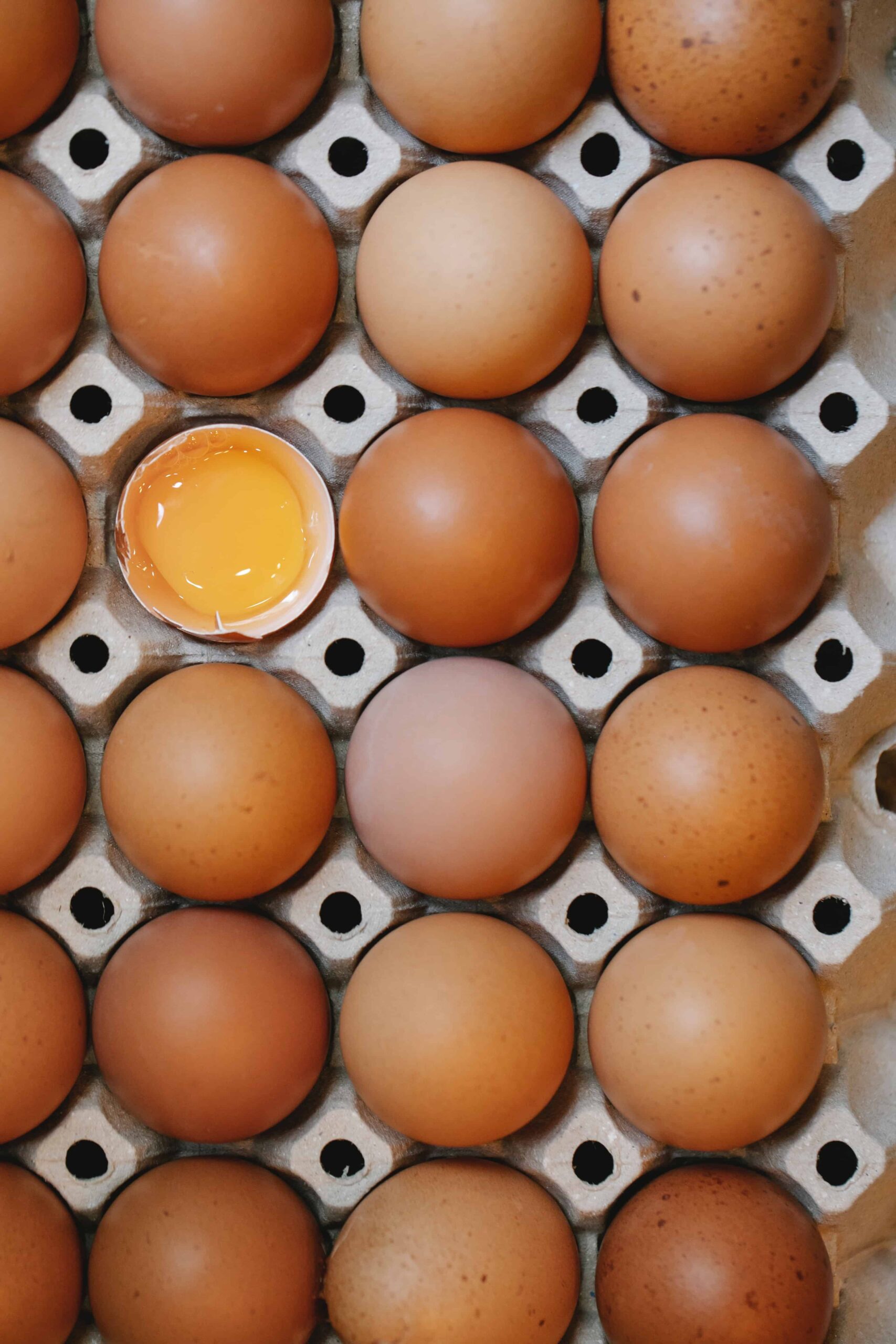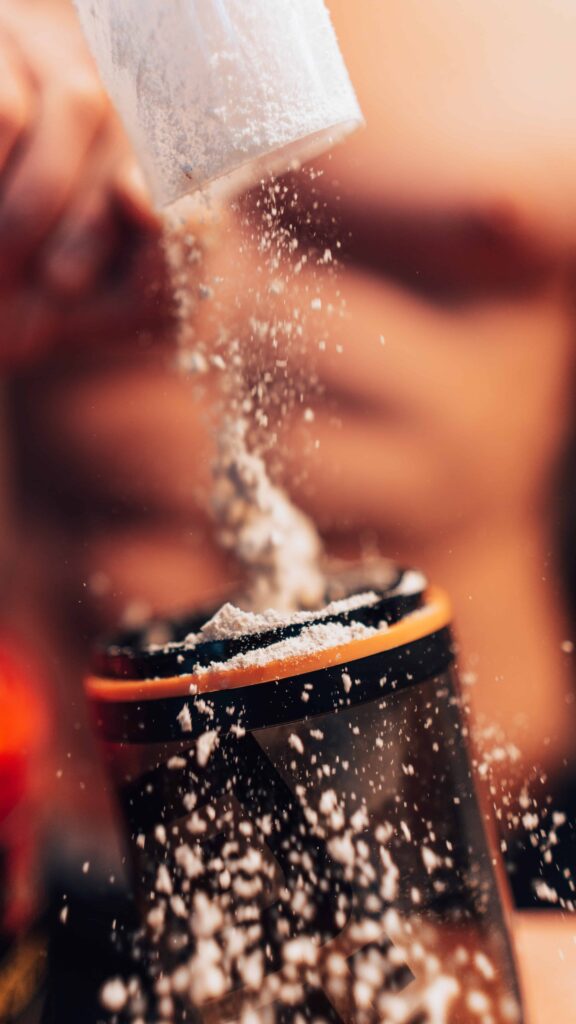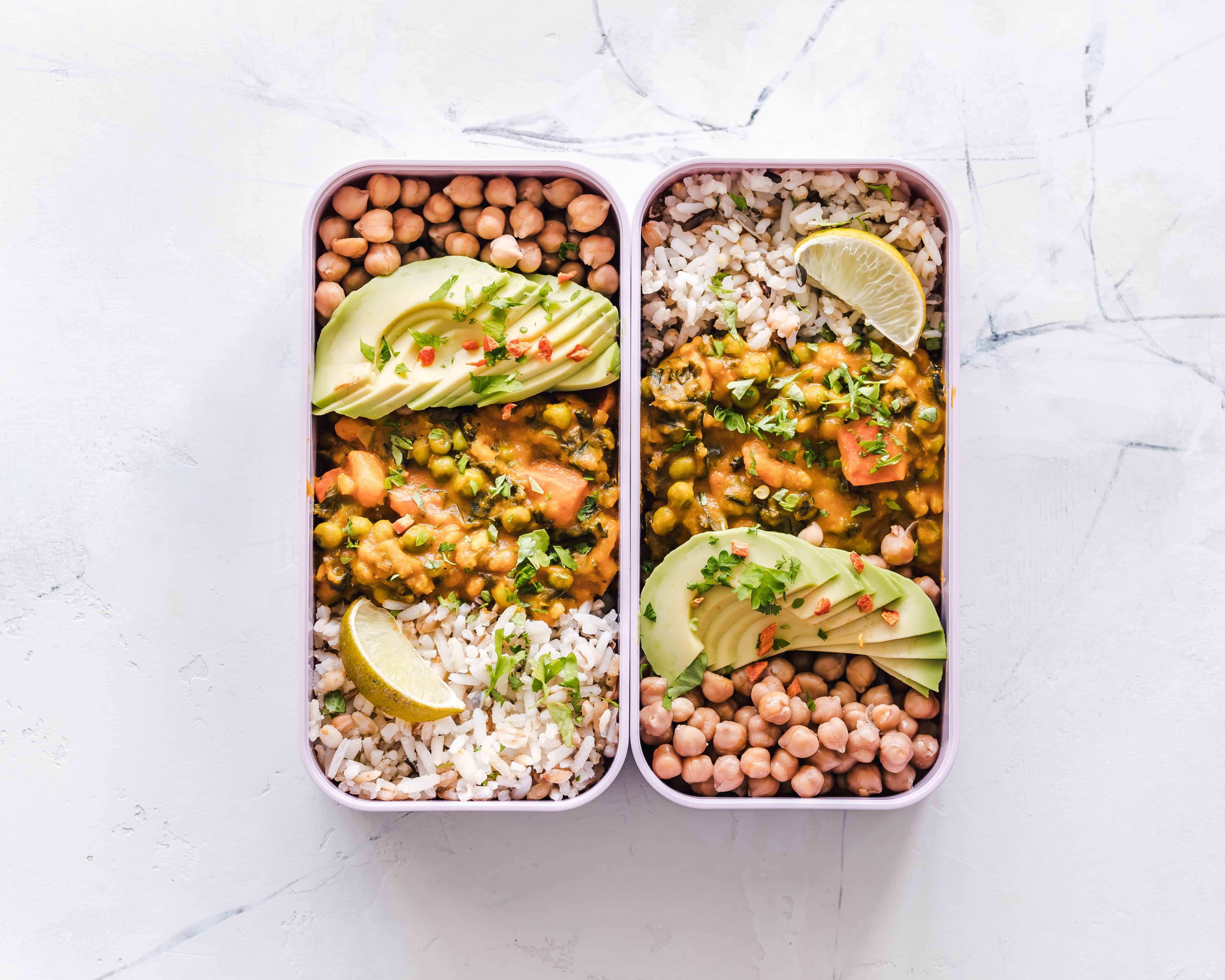Protein timing: important or a waste of time?
Have you ever wondered if timing when you eat protein really makes a difference? Will it impact muscle gain, fitness progress or weight loss? With so much advice on the internet, it can be hard to differentiate between fitness facts and myths. In this article, I break down what protein timing and whether or not the experts think it’s necessary. So let’s dig in!

What Is Protein And What does it do?
To understand protein timing we first need to understand what protein is and why it’s so dang important!
Protein is one of the three macronutrients, alongside carbohydrates and fats. It’s an essential building block for muscle recovery and growth.
When you work out, your muscles experience micro tears that need repairing. The body breaks down the protein you consume into amino acids and carries them directly to the muscles. Your body then strings together the amino acids into new proteins in process called Muscle Protein Synthesis (MPS). Just like a bandaid, The body sticks the new proteins onto the muscle. This not only repairs but also increases the size of the muscle.
What Is Protein Timing?
Protein timing is a strategy that was developed to optimise muscle protein synthesis. It involves consuming protein in a specific window before and after exercising.
The Anabolic Window
You may have heard or been told that you should consume protein 30 minutes after exercising to experience this amazing macronutrients full benefits. If your thinking that sounds like a lot of stressful planning then fear not, it’s absolutely not true!
Studies indicate that the anabolic window isn’t as narrow as we once thought. This fantastic article written by Schoenfeld, B.J., Aragon, A.A. & Krieger, J.W. for the Journal of the International Society of Sports, explains that their studies found that the anabolic window is optimal between 1-2 hours before or after training. However, their study also showed that there was little difference in results from participates that consumed protein within a 1-2 hour window and those that consumed between a 4-6 hour window.

What do the experts think?
Sadly, data on protein timing is conflicting. Due to limitations such as short supply of sample sizes, short study durations and difficulty controlling study parameters, it’s hard to conclusively create guidelines.
Something that experts do agree on, is that when it comes to protein timing, it’s important to look at the bigger picture: your entire day. When it really comes down to it, your total daily consumption of protein is what will truely make a difference in recovery, growth and even weight loss. Whilst timing exactly when you’re going to consume protein might make small differences, that’s really all it is. Small and almost insignificant differences.
How Much Protein Should I Be Eating?
It is agreed that individuals need to be consuming around 1.6-2.2 grams per kilo per day of protein.
When Should I Be Eating Protein?
It is a common misconception that the body can’t absorb 20-25 grams of protein at once due to over saturation of receptors. People then believe that they must consume protein continuously throughout the day. However, this study was found to be incorrect. Morton et al., 2018 ,concluded that when eating slower absorbing proteins (meat, eggs, beans, dairy and plant-based proteins) the 25-gram limit did not apply.
Experts believe that protein should be consumed in whatever way is easiest and most convenient for the individual. Snacks can be a great way to spread out your daily protein consumption or if you prefer to not eat between meals, then you can evenly distribute your protein between 3 meals.

The Verdict
Timing your protein won’t solely determinant your progress. What is important, is that you’re consistent with meeting you daily protein amount to not only smash you fitness goals but also maintain your general health.
Experts agree that you don’t necessarily need to rush to get protein in your body and as long as you’re hitting those numbers, you’re on the right track to fuelling your muscles.
So don’t stress too much. Aim to eat a balanced meal within a few hours after or before your next sweat session to give your muscles a boost of amino acids!
And remember, in fitness, there’s no one-size-fits-all rule. Your body is unique, and what works for someone else might not work for you. Pay attention to how your body responds to when you eat protein. Some people feel better with a pre-workout snack, while others prefer to save their protein for after. Trust your instincts and adjust accordingly.
Check out more on the blog!
Interested in boosting your recovery? Check out this article dedicated to the best recovery supplements!

Sore and achy muscles? Find out which massage you have to book yourself with this article!
